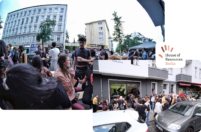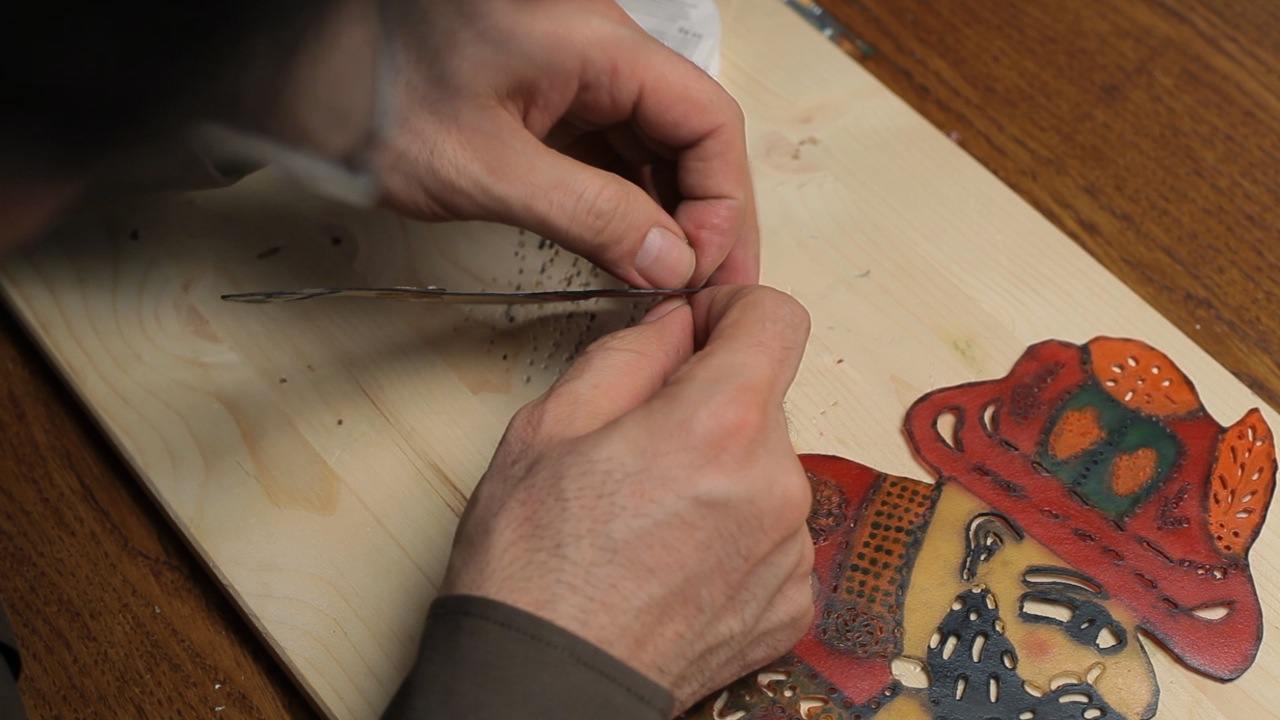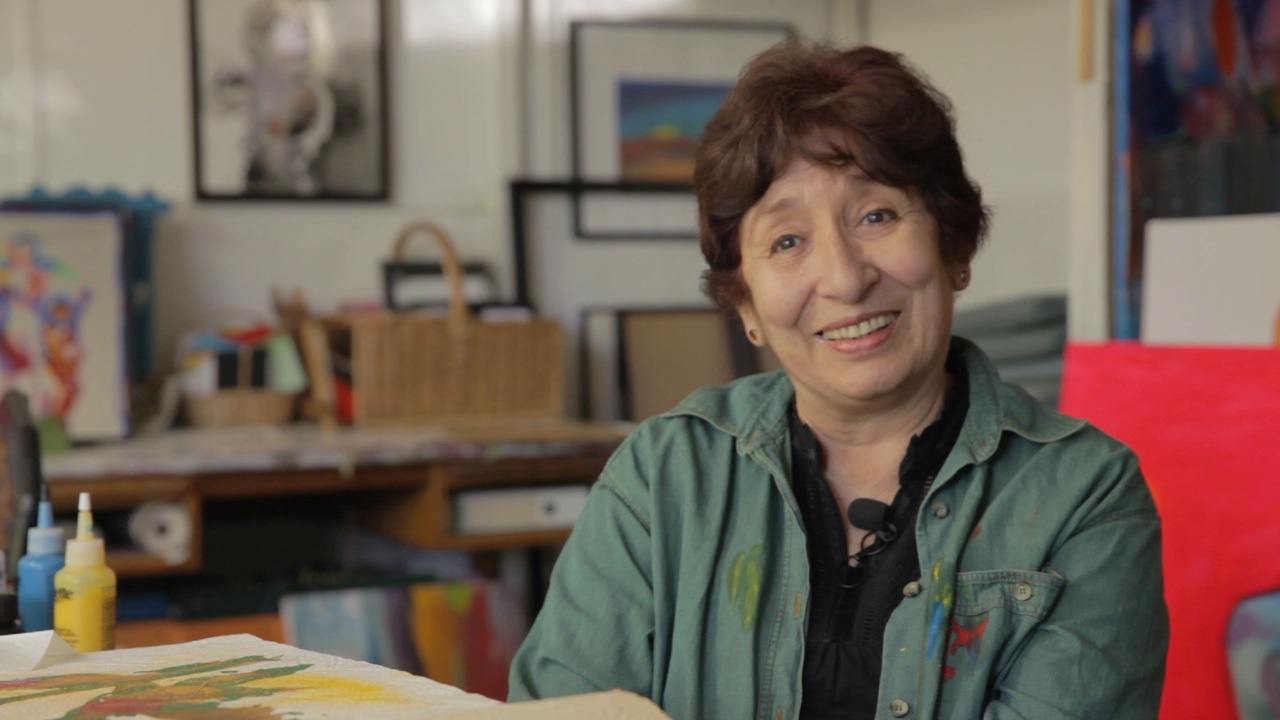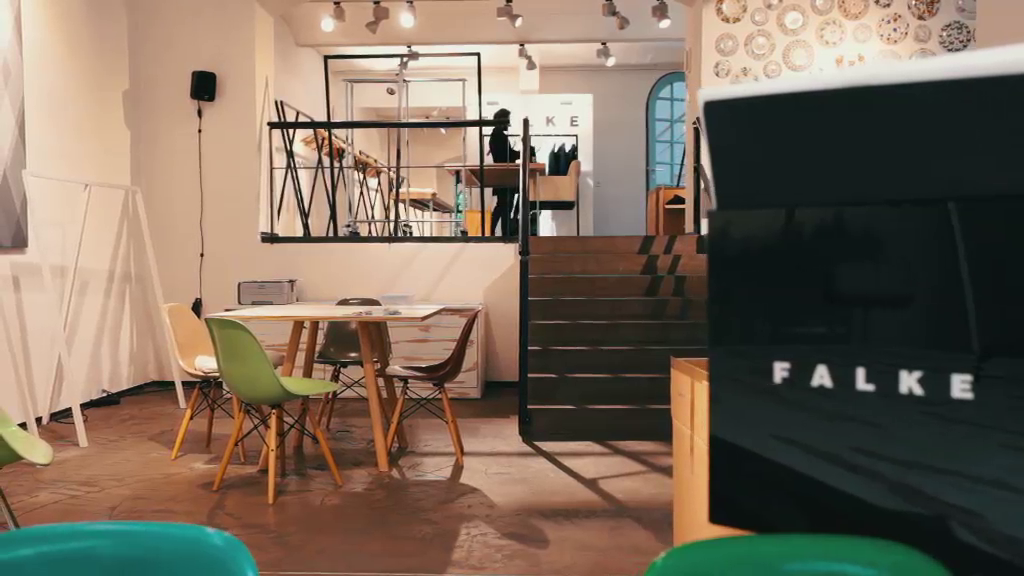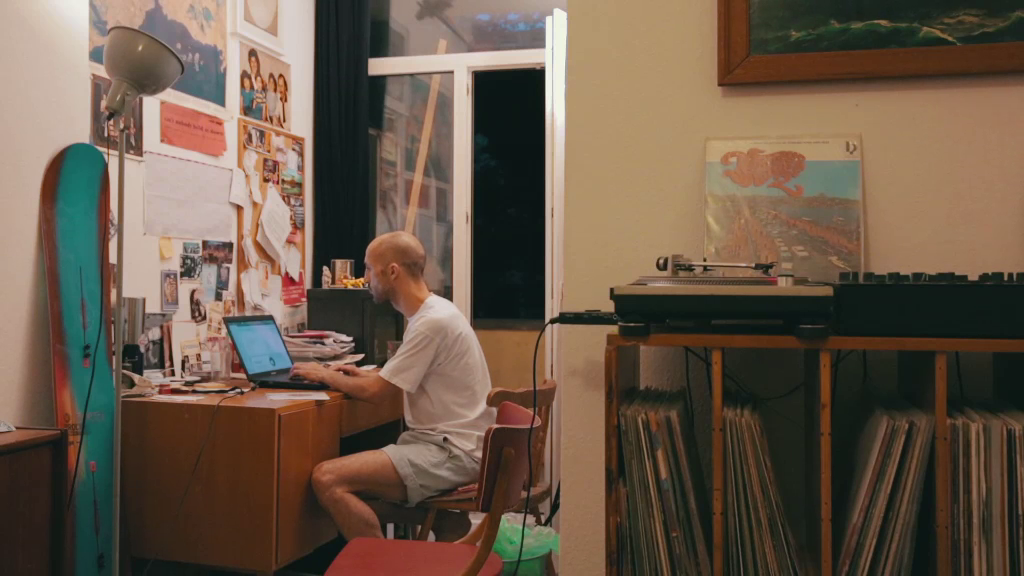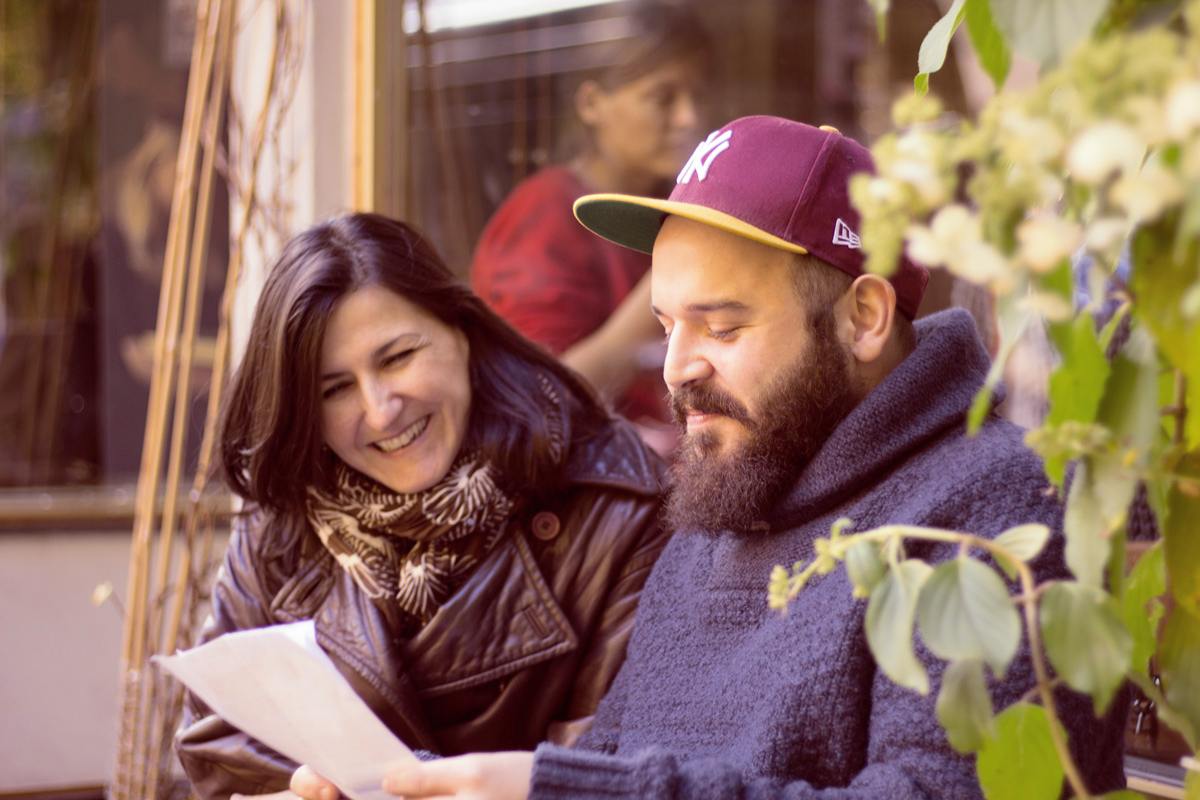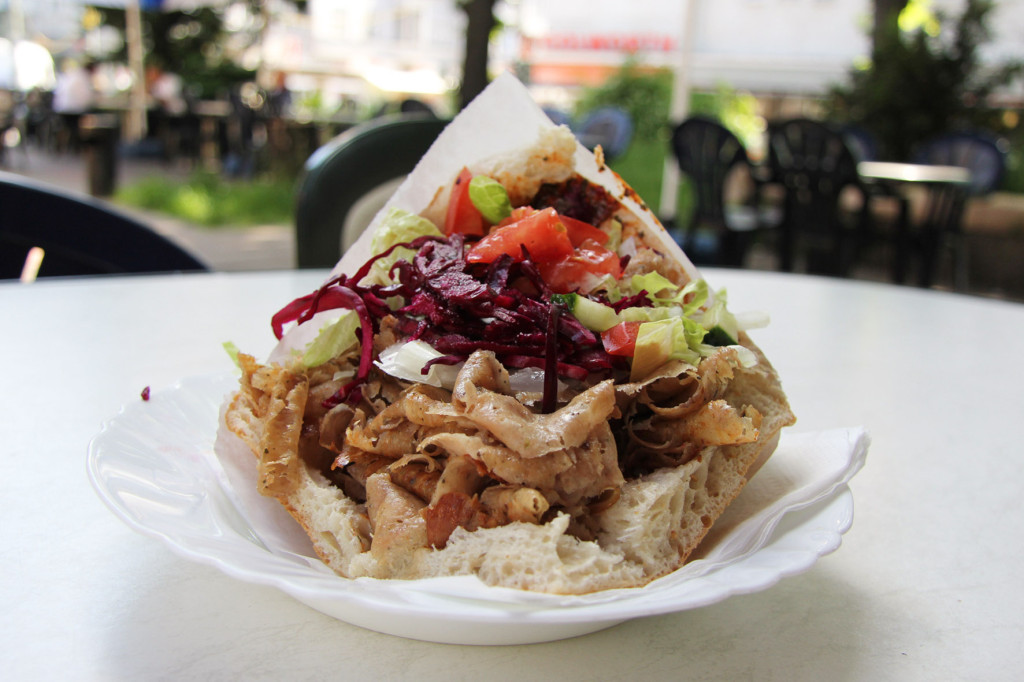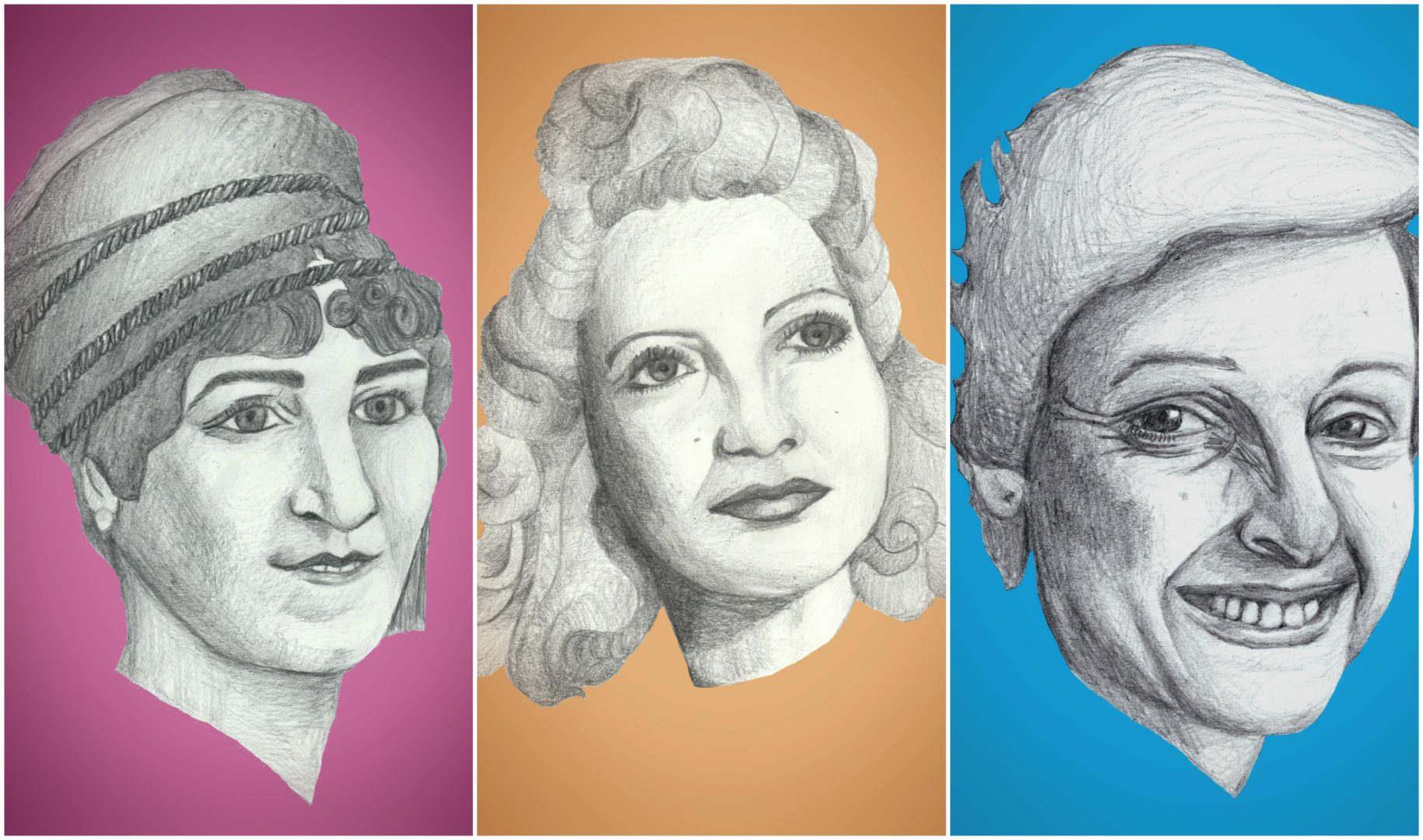The Turkish saying »Bir lisan, bir insan. Iki lisan, iki insan« means »He who speaks a language is only a person. He who speaks two languages, however, counts as two people«. How much do cultural surroundings influence individual persons and what happens when one grows up with two cultures? This film gives not only one example of this kind of life, but rather six beautiful variations of what it is like to live with two cultures.
Ali Köken is one of the six protagonists in Filiz Demircis’ documentary film »Ich mag Sucuk, du magst Sauerkraut!« (engl. I like Sucuk, you like Sauerkraut!- ed.). At the same time he is talking to the interviewer, he is making a new doll for his puppet theatre. »Through us, people find togetherness. They all melt into one society«. As a puppet master of the traditional Turkish puppet theatre Karagöz & Hacivat, he contributes to cultural integration. According to Ali Köken, »The theatre is a collective. It explains people to people. In this theatre, it doesn’t matter if you are Turkish or European, humanity is what counts«. Six episodes, six people, six lives, six passions; in thirty minutes, you meet Gönül Şen-Menzel, Ertu Kile, Burak Fahri Içer, Didem Sözen, Ali Köken and Fuat Arslan. All of them live in Germany and recount how they live with each cultural life: Turkish or German.
For example, Gönül Şen-Menzel is an artist. She has lived in Germany for 32 years and is completely and utterly devoted to painting. She does not renounce her origins. Rather, she emphasizes her ties to both cultures: »Germany is not just my second home. It has become my home. But I grew up in Turkey. I would have had a good life in both countries«. For Ertu Kile, a fashion agent at the company FALKE, home is where he makes his money. He was one of the first foreigners to work for the company and his experiences touch on recognition through performance: »Well, I think that acceptance has to be earned. It is too easy to say: »I’m not going to be accepted anyways because I’m Turkish«. I don’t see it that way.«
»I like Sucuk, you like Sauerkraut!« – the title of the film seems to draw cultural boundaries. In fact, it plays with established clichés and with an informal language; it tries to soften these barriers in order to build bridges. »Liking« defines a fondness – and fondness is easier to tolerate and accept. The blatant cliché that the title evokes has nothing to do with the content of the film. On the contrary: you meet six interesting and determined people. All of them are following different paths to make their dreams reality. In their hearts, however, they are all one culture richer.
Through the pointed use of visual analogies, Filiz Demirci emphasizes both the cultural interplay and the professional determination of each individual. Beautiful close-up shots of hands are consistently shown throughout the episodes and become the symbol of achievement and passion: hands of each character, hands making something, hands painting, building and lightly sweeping over the material or preparing dolma or espresso with love.
The episodes are structured through continually changing shots in black and white and colour. In an auditory sense, they are structured through the switch between Turkish and German language. With respect to the current debates on migration and integration, the film presents an interesting glimpse into the lives and development of people who connect two different cultures.
The documentary film »I like Sucuk, you like Sauerkraut!« was shot in 2013 and is Filiz Demirci’s first film.
(The premiere of this film was celebrated on the 21.12.2014, in the Lichtblick Cinema in Berlin. Filiz Demirci was present at the premiere. To honour Gönül Şen-Menzel, the online-release of this film will be on March 29, 2015, the anniversary of his death.)
Credits
Text: Büke Schwarz
Screenshots: www.elephilant.de
